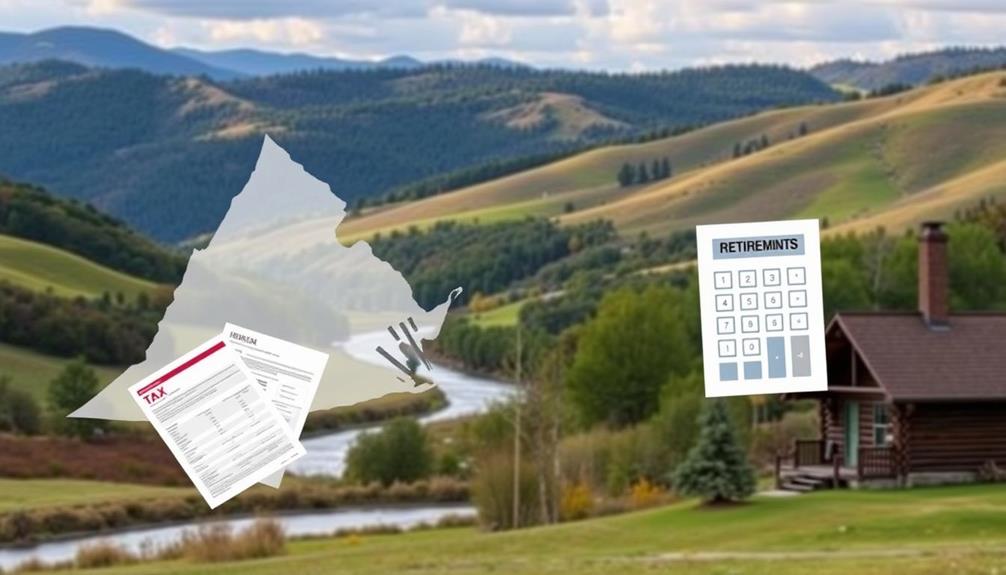In the first five years of retirement, having ample cash reserves is more important than ever because they provide financial stability and quick access to funds for unexpected expenses like medical emergencies or home repairs. This flexibility helps you avoid selling investments at a loss or making hasty decisions. Maintaining cash buffers also reduces stress and keeps your lifestyle intact during market downturns. To learn how to build and manage your reserves effectively, keep exploring these essential strategies.
Key Takeaways
- They provide immediate access to funds, safeguarding against unexpected expenses during the critical early retirement years.
- Cash reserves help prevent the need to sell investments during market downturns, protecting long-term growth.
- Having liquidity allows retirees to maintain their lifestyle and avoid drastic cutbacks when unforeseen costs arise.
- Early cash buffers enable timely response to urgent situations like medical emergencies or home repairs.
- Sufficient reserves offer financial control, reducing stress and enhancing confidence in managing retirement finances.

Have you ever wondered why maintaining cash reserves is vital during retirement? The first five years can be particularly pivotal because they often set the tone for your financial stability in the long run. During this period, unexpected expenses can arise at any moment, whether it’s a sudden medical bill, home repair, or other unforeseen costs. Having an emergency fund in place means you won’t have to dip into your investments or other savings, which might be volatile or illiquid. Instead, you’ll have readily accessible cash to cover these surprises, helping you avoid the stress of financial strain and potential disruptions to your lifestyle.
In this early retirement phase, your spending flexibility becomes more important than ever. When your cash reserves are sufficient, you’re less likely to cut back drastically or delay necessary expenses. You can maintain your desired quality of life without feeling strapped for cash when surprises pop up. An emergency fund acts as a financial safety net, giving you peace of mind and the confidence to enjoy your retirement without constantly worrying about money. It allows you to respond immediately to urgent needs, rather than scrambling to find funds or liquidate investments that might be down or harshly taxed if sold prematurely.
Having cash reserves also means you’re better positioned to capitalize on opportunities that might come your way. Maybe you want to splurge on a special trip or upgrade your home, and with enough liquidity, you can do so without jeopardizing your overall financial health. This spending flexibility can markedly enhance your retirement experience, making it more enjoyable and less stressful. It also provides a buffer during market downturns, giving you the ability to hold steady rather than panic-sell investments at a loss.
It’s vital to recognize that during these initial years, your income streams—like Social Security or pensions—may not fully cover all your expenses. Having ample cash reserves ensures you won’t be forced into hasty decisions, such as withdrawing from investments at an inopportune time. Instead, you can maintain control over your finances, making thoughtful choices that support your goals and lifestyle.
Ultimately, prioritizing cash reserves during the first five years of retirement creates a foundation of stability. It safeguards your finances against unexpected costs, preserves your spending flexibility, and gives you the confidence to enjoy your retirement years without constant financial worry. Building and maintaining a robust emergency fund isn’t just smart planning; it’s vital for a secure and fulfilling retirement journey.
Frequently Asked Questions
How Do I Determine the Right Amount of Cash Reserves for Retirement?
To determine the right amount of cash reserves for retirement, start with your retirement budgeting needs, covering essential expenses and unexpected costs. Keep enough cash on hand for at least three to six months of living expenses. This approach supports investment diversification by allowing you to avoid liquidating investments during downturns. Regularly review your expenses and adjust your reserves accordingly to ensure financial stability in those critical early retirement years.
What Are the Best Assets to Hold as Cash Reserves?
When choosing assets for cash reserves, focus on safe assets that offer liquidity and stability. High-yield savings accounts, money market funds, and short-term certificates of deposit are excellent options. They provide quick access to cash when needed and minimize risk. Incorporating these safe assets into your liquidity strategies guarantees you have reliable cash reserves to cover expenses without sacrificing growth or security.
How Can I Access Cash Reserves Quickly During Emergencies?
Imagine your cash reserves are like a fire extinguisher—you want it close by when emergencies strike. To access emergency funding quickly, keep your cash reserves in a liquid, easily accessible account like a high-yield savings or money market fund. Effective liquidity management guarantees you can tap into funds without penalties or delays, providing peace of mind when unexpected costs arise. Always have a plan ready for swift access.
Are There Risks of Keeping Too Much Cash in Retirement?
You might risk missing out on potential growth if you keep too much cash in retirement, since cash offers low returns and no inflation protection. While cash reserves provide liquidity during emergencies, over-conserving can limit your investment diversification and long-term growth. Balance your cash stash carefully to guarantee quick access during crises, but also invest enough elsewhere to combat inflation and maximize your retirement income.
How Often Should I Review and Adjust My Cash Reserve Strategy?
You should review your cash reserve strategy at least annually, especially as market conditions and your personal circumstances change. This keeps your investment diversification on track and helps you avoid unexpected tax implications. Regular reviews allow you to adapt, ensuring your cash reserves support your retirement goals without risking over-concentration or missed opportunities. Staying proactive now guarantees your financial stability remains solid throughout your retirement journey.
Conclusion
Having ample cash reserves in your first five years of retirement isn’t just about peace of mind; it’s a smart strategy backed by financial research. Some experts argue that maintaining liquidity helps you avoid market downturns and withdrawal risks, ensuring your savings last longer. So, don’t underestimate the power of cash—it’s not just safety net, but a strategic tool to navigate unpredictable times and secure your retirement future confidently.









